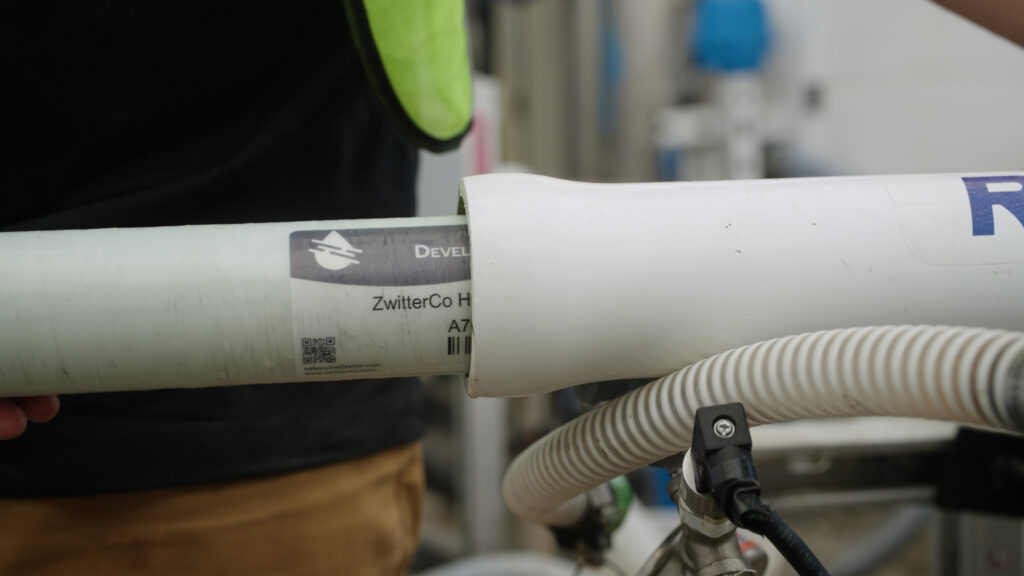Dissolved Air Flotation (DAF) systems are essential tools in the meat and poultry industry, tasked with removing fats, oils, grease (FOG), and total suspended solids (TSS) from wastewater. However, their heavy reliance on chemical additives can complicate operations, elevate costs, and impact sustainability goals. ZwitterCo Superfiltration (SF) membranes offer a powerful solution to optimize your DAF systems and wastewater plant for more efficient, cost-effective, and environmentally friendly performance.
Rethinking DAF: Proven Systems, Innovative Improvements
DAF systems are critical in managing wastewater for meat and poultry processors, providing separation of contaminants before sewer disposal. However, traditional chemical-intensive practices limit efficiency and sustainability. The solution lies not in replacing DAF entirely, but in minimizing its chemical dependency through strategic technology integration.
The Chemical Problem: Costs, Complexity, and Sustainability
The frequent use of polymers and coagulants within traditional DAF operations significantly increases operational complexity and costs. Handling these chemicals introduces safety risks, logistical challenges, and variability in wastewater treatment performance. Environmentally, high chemical loads increase wastewater treatment and disposal challenges, impacting compliance and sustainability initiatives.
The ZwitterCo Solution: Reduce DAF Chemicals
ZwitterCo superfiltration (SF) membranes represent an innovative way to optimize DAF systems. By installing SF membranes, plants can drastically reduce or even eliminate their DAF chemical demand, effectively running the process unit in an air-only configuration. This is done by achieving superior removal rates of over 99% for FOG and TSS in the SF step, allowing the DAF to operate as an air-only separation of bulk FOG and solids. This approach allows facilities to operate their DAF systems much more efficiently – achieving reliable treatment outcomes with far fewer chemicals.

Operational Wins: From Manual to Automated Processes
ZwitterCo membranes streamline wastewater treatment operations, significantly reducing manual handling of chemicals and complex dosage adjustments according to the ever-changing wastewater quality. By minimizing chemical adjustments, plant operators experience fewer disruptions, reduced downtime, and a smoother, more automated wastewater management process.
Financial Upside: Cut Costs Without Cutting Performance
Reducing chemical consumption directly translates into substantial cost savings. Facilities using ZwitterCo membranes can significantly cut their chemical budgets while maintaining or improving wastewater quality. Additionally, minimizing chemical use enhances opportunities to valorize concentrated solids and FOG into valuable byproducts, such as organic fertilizers and animal feed supplements, creating new revenue streams.
Sustainability and Compliance Boosts
Lowering chemical usage dramatically reduces the environmental impact of wastewater operations. It simplifies regulatory compliance and reduces the plant’s overall carbon footprint, aligning with corporate sustainability initiatives and supporting long-term ecological goals.
Transitioning to a reduced-chemical approach with ZwitterCo SF membranes is not just an operational tweak – it’s a strategic upgrade towards better environmental stewardship, lower costs, and enhanced efficiency. Contact ZwitterCo today to discover how we can help optimize your DAF system, reducing your chemical footprint while maximizing operational reliability.

